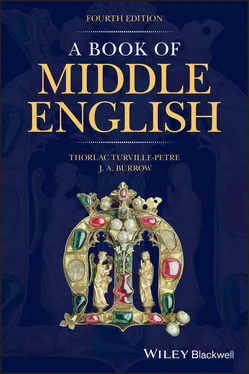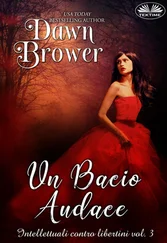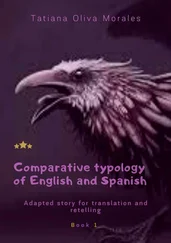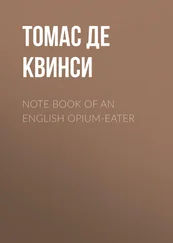The traditional form of the lullaby, with its sentimental focus on the helpless baby, is in poignant contrast to the grim knowledge of the sufferings this child will undergo, for the baby is Jesus, and the speaker is perhaps gazing at a Christmas crib and reflecting on its significance. As the baby born in a stable, Christ is unkut , ‘not known’; OED uncouth traces the sense development through to its modern sense. Christ will suffer ‘for the thing that was your own’, i.e. mankind, created by God. He is forsake , anticipating his cry at his crucifixion, ‘Why hast thou forsaken me?’ (Matthew 27.46).
In the second stanza the baby is a grom ; the modern ‘groom’ is used in a narrower sense. In l. 9 wer is subjunctive in an if clause (5.6.6) where today the indicative would be more usual; in line 10 smerte means ‘painful’; OED smart adj . 10, records the modern sense ‘clever’ from the late sixteenth century, though we still use the verb smart in the sense ‘cause pain’. In the last line blak means ‘pale, pallid’; it is a classic false friend. Its origin is OE blāc ; see MED blok . So in some dialects, as here, it has the same spelling as ‘black’ from OE blæc ; see MED blak . Very confusing! The final detail, that Christ’s body is ‘dry’, is repeated in Julian of Norwich’s vision of the dead Christ as ‘dry and bloodless’.
Pearl , with its intricate metrical structure of linked twelve‐line rhyming stanzas with heavy alliteration, and its extraordinarily rich vocabulary, sets the greatest challenge to the translator, yet many have taken up that challenge with the aim of making the poem accessible to a modern audience. Some have tried to reproduce the metrical structure of the original; others have departed from it in various ways, but yet have attempted to transmit the movement and changing moods of the poem. The result is sometimes an effective and moving poem, but it is a new creation. And yet a literal translation, while transmitting the surface meaning of the text, lacks the formal structures that control the movement of the verse and the narrative. In these circumstances a commentary is particularly appropriate in order to draw attention to what is lost. Here is an example of a flat prose translation of Pearl 265–76 (text 10), followed by a commentary pointing to features not adequately conveyed by the translation:
‘Bot, jueler gente, if þou schal lose
Þy joy for a gemme þat þe watz lef,
Me þynk þe put in a mad porpose,
And busyez þe aboute a raysoun bref. 268
For þat þou lestez watz bot a rose
Þat flowred and fayled as kynde hyt gef;
Now þurʒ kynde of þe kyste þat hyt con close
To a perle of prys hit is put in pref. 272
And þou hatz called þy wyrde a þef,
Þat oʒt of noʒt hatz mad þe cler!
Þou blamez þe bote of þy meschef.
Þou art no kynde jueler!’ 276
‘But, worthy jeweller, if you’re going to lose your happiness for a gem that was precious to you, it seems to me that you are set on an irrational course, and concern yourself about a short‐lived matter; for what you lost was merely a rose that flowered and faded in accordance with nature. Now through the nature of the casket that encloses it, it has proved to be a pearl of great price. And you have called your fate a thief, which has plainly made for you something out of nothing! You are blaming what is the remedy for your misfortune. You are no right‐minded jeweller!’
The stanza is constructed as three four‐line sentences: in the first the Maiden states her opposition to the Dreamer’s statement, in the second she explains her objection, which leads to her condemnation of the Dreamer in the third. This logical structure is signalled by the conjunctions Bot if , For , And , ‘And yet’. Sentences are divided syntactically into two‐line clauses, as in lines 265–6 (subordinate clause), 267–8 (main clause). The vocabulary is relatively idiomatic, the alliteration more restrained than elsewhere in the poem, so that rhetorical devices such as the alliterating anthesis ‘flowred and fayled’, and the rhyme ‘oʒt of noʒt’, stand out by contrast. The poet plays on the word kynde , using it in different senses: firstly (270) as Nature that controls the life and death of all creatures; in the next line as the inherent nature or property of an object; in the final line as an adjective qualifying the jeweller, with a sense broader than the modern ‘kind’. Though including ‘generous, good natured’, its basic meaning is ‘having the good qualities expected’, in this case expected of a jueler gente , as the Maiden has addressed him. MED gent adj. offers a range of meanings, beginning with ‘of noble birth’, hence ‘of noble character’, and a broader range for the related adjective gentil , also used of the Dreamer in this part of the poem. He is both an ungracious and unnatural jeweller, for refusing the gift of a pearl and for blaming his wyrde for his supposed loss. When the Dreamer had used wyrde in l. 249, he was complaining about the concept of fate or destiny operating in random fashion. The Maiden picks him up on this; destiny is in the control of God who has created something from nothing, alluding to the doctrine of ‘creatio ex nihilo’. The Dreamer has lost a rose; this looks back to the flowery mound in the garden at the start of the poem. He has gained a pearl ‘of prys’; this looks forward to the reference to the biblical ‘pearl of great price’ which the Dreamer, like the merchant of the parable, is urged to purchase (733–44). He calls himself a jeweller; if so, the Maiden implies, he should sort out his priorities. His Pearl is enclosed in a kyste , a jewel‐chest; in the previous stanza she had called it a cofer and a forser , and defined it as the garden of paradise.
The issues raised by verse translation were considered by John Lydgate, whose poetic career was built on satisfying his patrons’ demands for English versions of Latin and French classics. Where a word‐for‐word translation is impossible, says Lydgate, he follows the substance of the original, but he admits the result is never wholly satisfactory. He ends his version of the French Dance Macabre (ed. Megan L. Cook and Elizaveta Strakhov (Kalamazoo, MI, 2019)) with this apology:
Out of the Frensshe I drewe it of entente,
Not worde by worde but folwyng the substaunce,
And fro Paris to Engelonde it sente
Oonly of purpos yow to do plesaunce.
Rude of langage (I was not born in Fraunce),
Have me excusid; my name is John Lidgate.
Of her tunge I have no suffisaunce
Her corious metris in Englisshe to translate.
Конец ознакомительного фрагмента.
Текст предоставлен ООО «ЛитРес».
Прочитайте эту книгу целиком, купив полную легальную версию на ЛитРес.
Безопасно оплатить книгу можно банковской картой Visa, MasterCard, Maestro, со счета мобильного телефона, с платежного терминала, в салоне МТС или Связной, через PayPal, WebMoney, Яндекс.Деньги, QIWI Кошелек, бонусными картами или другим удобным Вам способом.












